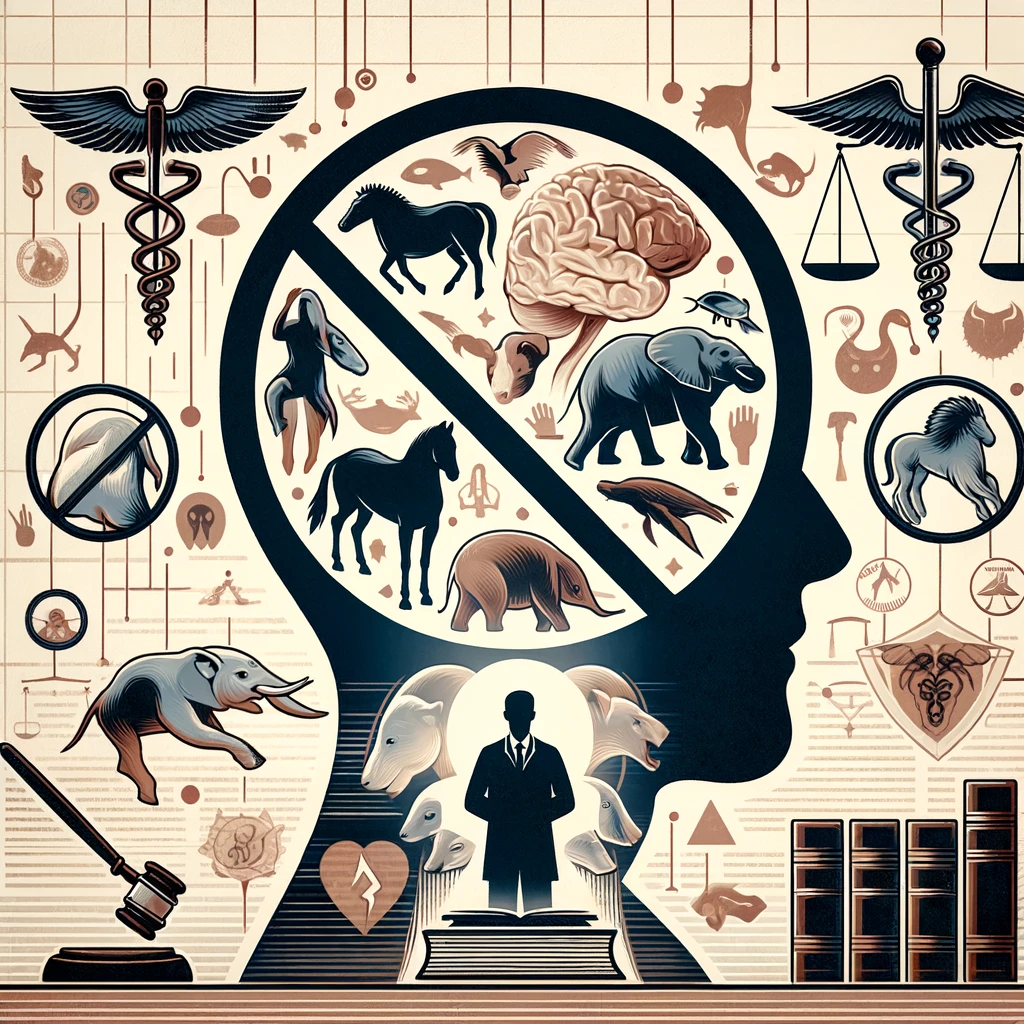Zoophilia (ज़ोफ़िलिया) is a paraphilia in which a person experiences a sexual fixation on non-human animals. Bestiality instead refers to cross-species sexual activity between humans and non-human animals. Due to the lack of research on the subject, it is difficult to conclude how prevalent bestiality is. Zoophilia, however, was estimated in one study to be commonplace in 2% of the population in 2021. Zoophilia is a paraphilia characterized by sexual attraction to animals. It is widely regarded as a form of deviant behavior and is condemned in most cultures and legal systems due to ethical concerns and the inability of animals to consent. In modern times, it is classified under paraphilic disorders in psychiatric literature, with a focus on its harmful effects on both animals and individuals. Legal frameworks primarily address zoophilia as a form of animal abuse, prioritizing the protection of animal welfare.
Terminology of Zoophilia
Zoophilia is a term used to describe paraphilia in which a person experiences a sexual attraction to animals. This attraction is considered abnormal or disordered in most psychological and legal contexts.

Risk factors of Zoophilia
The risk factors for developing zoophilia are complex and not entirely understood. Still, several psychological, environmental, and developmental factors have been proposed based on research into paraphilias and atypical sexual interests. Key risk factors include:
1. Early Sexual Experiences
- Exposure to sexual activities involving animals at a young age, either through witnessing, direct involvement, or media exposure, may contribute to the development of zoophilia.
- Early trauma or inappropriate sexualization in childhood, including abuse or coercion, may also be linked to later paraphilic tendencies.
2. Social Isolation
- People who experience long-term social isolation or have difficulty forming intimate human relationships may become attracted to animals as a form of companionship or surrogate sexual outlet.
- A lack of human sexual partners or social interactions might lead individuals to focus on animals for sexual gratification.
3. Psychological Disorders
- Individuals with other mental health disorders, such as depression, anxiety, personality disorders, or autism spectrum disorders, might be more prone to paraphilias, including zoophilia.
- Obsessive-compulsive disorder (OCD) or impulse control disorders can play a role in paraphilic behavior, leading to compulsive or harmful sexual thoughts and activities.
4. Attachment Issues
- People with difficulty forming normal emotional attachments with humans may be more likely to form attachments with animals. These relationships can become sexualized over time.
- Childhood neglect, abuse, or attachment disorders (e.g. insecure attachment styles) can contribute to non-normative sexual interests.
5. Rural or Agricultural Upbringings
- Individuals raised in rural settings or who work with animals nearby, such as on farms, maybe at a slightly higher risk due to frequent interaction with animals, though this is not a direct cause.
- Cultural or situational factors in certain rural or isolated communities may reduce societal scrutiny of such behaviors.
6. Fantasy Reinforcement
- The repeated indulgence in sexual fantasies involving animals, either through pornography or personal imagination, can reinforce and normalize these desires, eventually leading to zoophilic tendencies.
- Some individuals may begin with non-sexual fascination or admiration for animals, which can evolve into sexual attraction over time.
7. Sexual Orientation and Deviancy
- Individuals with a predisposition toward other paraphilic disorders, such as fetishism, voyeurism, or sadomasochism, might be more likely to develop zoophilia as part of broader atypical sexual interests.
- Zoophilia may also co-occur with other forms of sexual deviance, including bestiality or necrophilia, as part of a broader pattern of deviant behavior.
8. Neurological Factors
- Some research suggests that neurobiological factors, including hormonal imbalances, brain structure anomalies, or developmental disorders, could contribute to the emergence of paraphilias like zoophilia.
9. Cultural and Societal Influence
- In some cases, individuals may be influenced by subcultures or fringe groups that normalize or promote zoophilic behaviors.
- Lack of clear legal or social boundaries, as seen in certain historical or cultural contexts, may also influence individuals to engage in zoophilic behavior.
10. Lack of Sexual Outlet
- In some extreme cases, individuals may develop zoophilia due to a lack of human sexual partners, particularly in situations of extreme isolation (such as prisons or isolated geographic areas).
11. Consequences and Dangers
- Psychological distress: Zoophilia is often associated with guilt, shame, and social alienation.
- Legal consequences: In most countries, engaging in sexual acts with animals (bestiality) is illegal and can result in criminal charges.
- Ethical and animal welfare concerns: Zoophilia raises significant ethical considerations, as animals cannot consent to sexual activity, making it abusive by nature.
Treatment for zoophilia typically involves psychotherapy, particularly cognitive-behavioral therapy (CBT), and sometimes medication to manage impulses or related psychological conditions.
Perspectives on zoophilia
Treatment for Zoophilia

History of Zoophilia
Reference: https://en.wikipedia.org/wiki/Zoophilia


The best place Buy your firearms. All our firearms are covered by a one year manufacturer’s warranty – No Questions Asked. We even cover the shipping to and from our facility. (Shipping comes with insurance).
After the first year, warranty shifts to Limited Lifetime. (Please email for an RMA number, your firearm will not be accepted without one). The best firearms outlet.
http://firearmpawnshop.com/product/fn-502-tactical/
http://firearmpawnshop.com/shop/
http://firearmpawnshop.com/